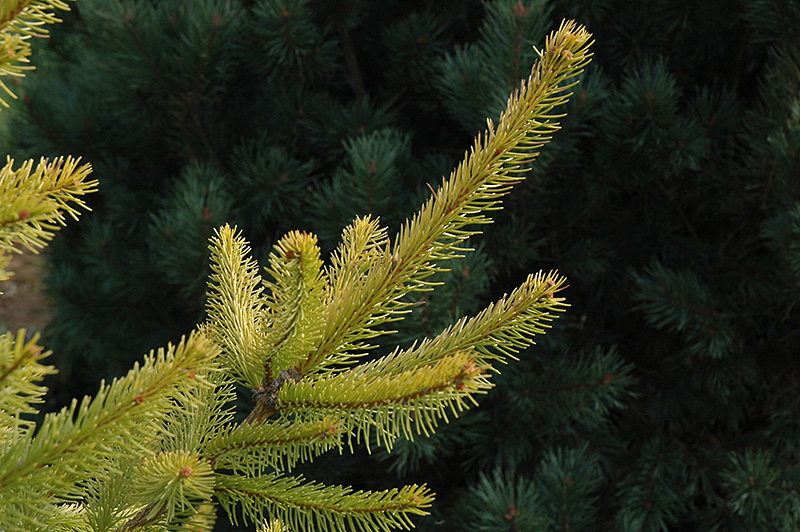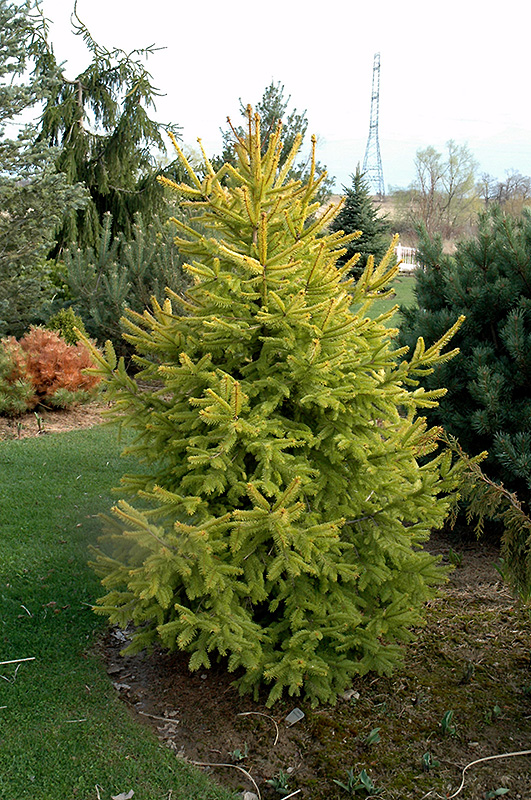Aurea Magnifica Norway Spruce
Picea abies 'Aurea Magnifica'
Height: 35 feet
Spread: 15 feet
Sunlight:
![]()
Hardiness Zone: 4
Other Names: Golden Norway Spruce, Norwegian Spruce
Description:
An attractive form of this popular spruce with glossy yellow-green needles in summer; intense yellow gold in winter and early spring; a fine color accent tree when set off against the other greenery in your yard
Ornamental Features
Aurea Magnifica Norway Spruce is primarily valued in the landscape for its distinctively pyramidal habit of growth. It has attractive chartreuse evergreen foliage which emerges yellow in spring. The needles are highly ornamental and remain chartreuse throughout the winter.
Landscape Attributes
Aurea Magnifica Norway Spruce is a dense evergreen tree with a strong central leader and a distinctive and refined pyramidal form. Its average texture blends into the landscape, but can be balanced by one or two finer or coarser trees or shrubs for an effective composition.
This is a relatively low maintenance tree. When pruning is necessary, it is recommended to only trim back the new growth of the current season, other than to remove any dieback. Deer don't particularly care for this plant and will usually leave it alone in favor of tastier treats. It has no significant negative characteristics.
Aurea Magnifica Norway Spruce is recommended for the following landscape applications;
- Accent
- Vertical Accent
- Hedges/Screening
Planting & Growing
Aurea Magnifica Norway Spruce will grow to be about 35 feet tall at maturity, with a spread of 15 feet. It has a low canopy, and should not be planted underneath power lines. It grows at a medium rate, and under ideal conditions can be expected to live for 50 years or more.
This tree should only be grown in full sunlight. It does best in average to evenly moist conditions, but will not tolerate standing water. It is not particular as to soil type or pH, and is able to handle environmental salt. It is highly tolerant of urban pollution and will even thrive in inner city environments. This is a selected variety of a species not originally from North America.



